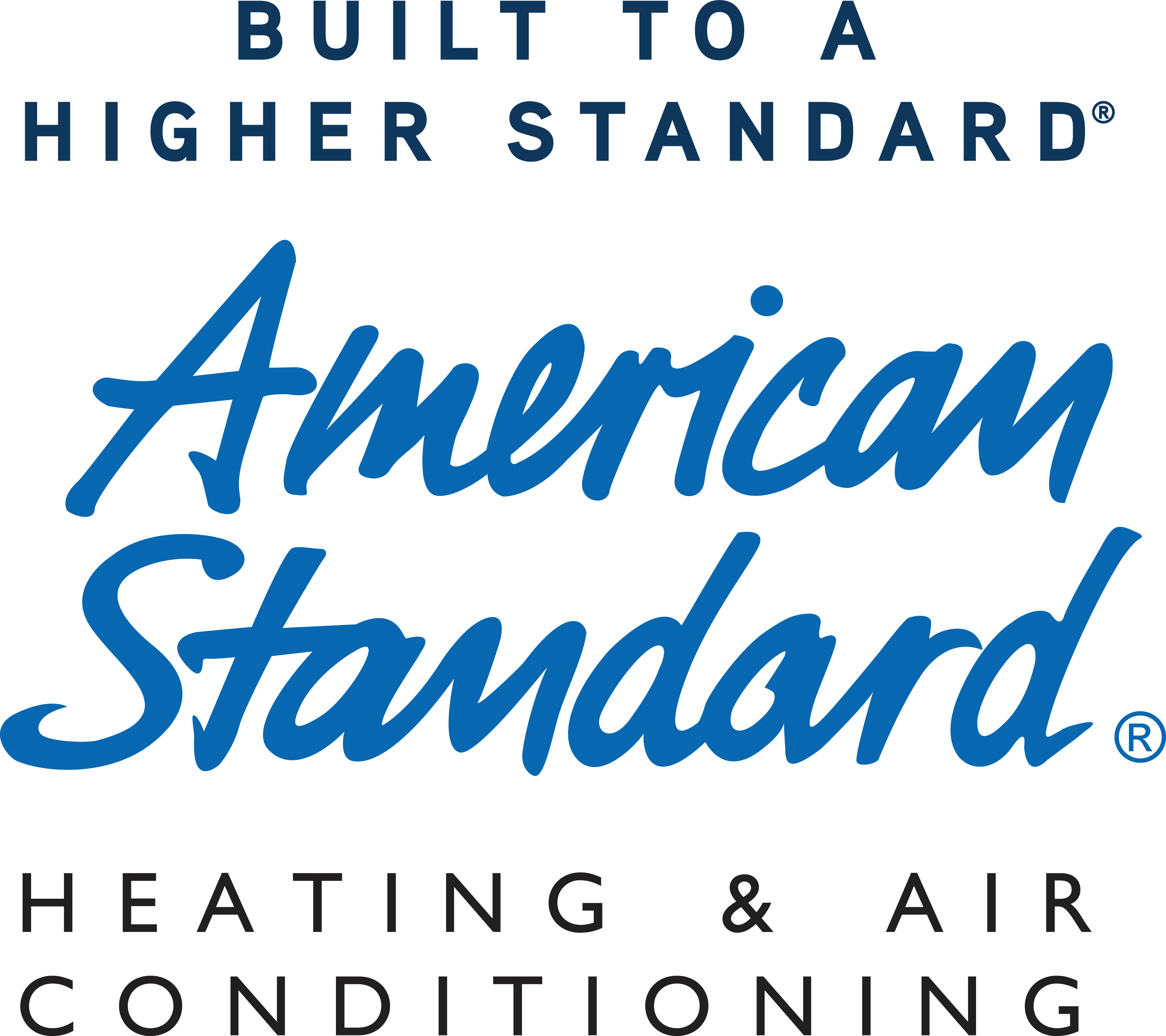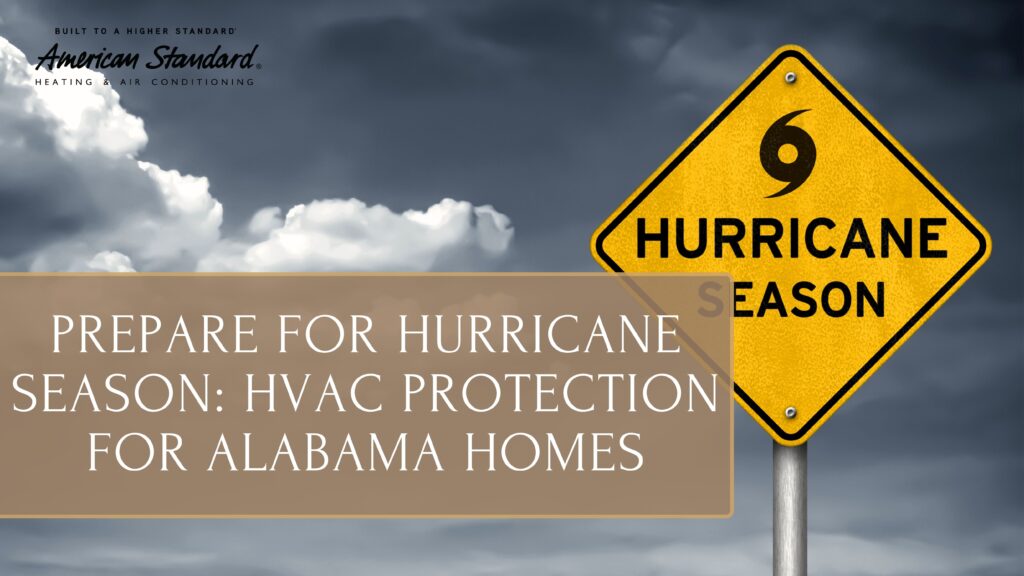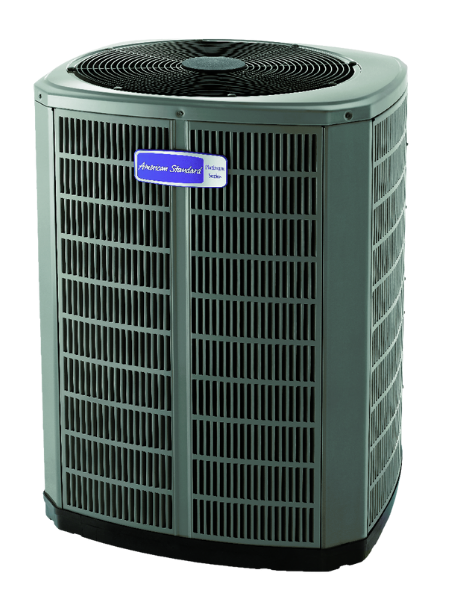Living in Alabama, we know that hurricane season is a yearly reality that brings high winds, heavy rains, and power outages. Our coastal and inland communities must prepare for unpredictable storms that can cause costly damage to homes and HVAC systems. As locals, we understand the challenges you face when we prepare for hurricane season, and we’re here to help you keep your heating and cooling system safe when severe weather hits.
Your HVAC system is one of the most expensive and essential components of your home, keeping you comfortable in the sweltering Alabama heat. Taking the right precautions before a hurricane can help prevent damage, costly repairs, and system failures when you need cooling the most. Here’s a comprehensive guide on how to prepare your HVAC system for hurricane season and protect your investment. Prepare for Hurricane Season
1. Schedule a Pre-Season HVAC Inspection
Before hurricane season officially begins on June 1, schedule an HVAC inspection to ensure your system is running efficiently and is in the best possible condition to withstand severe weather. A professional technician will check for:
- Loose or worn-out components that could break during high winds
- Electrical issues that might lead to system failure after a power surge
- Refrigerant levels to ensure your AC runs efficiently post-storm
- The condition of your air filters, which should be changed regularly
Regular HVAC maintenance before hurricane season not only helps protect your system from storm damage but also ensures you’re not left without air conditioning when summer temperatures soar.
2. Secure Your Outdoor Unit to Prevent Storm Damage
Outdoor HVAC units are built to withstand normal weather conditions, but hurricanes are another story. Strong winds can shake, shift, or even completely detach an unsecured unit, leading to expensive repairs.
To protect your system:
- Make sure your outdoor unit is securely fastened to its concrete pad.
- Use hurricane straps or brackets to anchor the unit to prevent movement.
- If flooding is common in your area, consider elevating your HVAC unit to minimize water damage.
Securing your unit now can prevent thousands of dollars in damage when a hurricane strikes.
3. Turn Off Your HVAC System Before the Storm Hits
When a hurricane is approaching, turn off your HVAC system at the thermostat and breaker to prevent damage from power surges and lightning strikes. This step is critical because: Prepare for Hurricane Season
- Power fluctuations can burn out the electrical components of your system.
- Flooding can cause water to seep into the unit, creating short circuits.
- Restarting an HVAC system too soon after an outage can overload the system.
Once the storm has passed and power is restored, wait until an HVAC technician inspects your unit before turning it back on if you suspect damage.
4. Cover Your Outdoor Unit (But Only Temporarily!)
A protective cover can shield your HVAC system from flying debris during a storm. However, it’s important to use a manufacturer-approved cover or a breathable tarp that won’t trap moisture. Prepare for Hurricane Season
⚠️ IMPORTANT: Never leave the cover on after the storm! A covered HVAC system in hot, humid Alabama weather can trap moisture and cause mold growth, leading to expensive damage.
5. Clear the Area Around Your Unit
Loose objects in your yard can become dangerous projectiles in hurricane-force winds. Before a storm arrives:
- Trim back tree branches that could fall onto your unit.
- Secure patio furniture, lawn decorations, or garbage bins.
- Store loose tools and outdoor equipment in a safe location.
Taking these steps reduces the risk of flying debris damaging your HVAC system or blocking airflow once the storm passes.
6. Protect Against Power Surges with a Surge Protector
Power surges are common during hurricanes and can fry the electrical components of your HVAC system. Installing a whole-home surge protector or a dedicated HVAC surge protector can prevent this damage and extend the life of your air conditioning system. Prepare for Hurricane Season
If you already have a surge protector, have it tested to make sure it’s functioning properly before hurricane season.
7. Prepare for Possible Flooding
Many areas in Alabama, especially in Baldwin County, experience flooding during hurricanes. Even if your home isn’t in a flood zone, heavy rains can still overwhelm drainage systems, leading to standing water around your HVAC unit.
To reduce the risk of flood damage: Prepare for Hurricane Season
- Ensure your unit is elevated if you live in a high-risk flood zone.
- Make sure gutters and drainage areas are clear so water flows away from your home.
- If possible, place sandbags around your unit to redirect water flow.
Flood damage can be catastrophic to an HVAC system, requiring a full replacement in severe cases.
8. Plan for Power Outages with a Backup Generator
Power outages after hurricanes can last days or even weeks, leaving your home unbearably hot and humid. If you rely on your HVAC system for medical reasons or extreme heat tolerance, a backup generator can help keep your air conditioner running.
When choosing a generator, ensure it has enough wattage to power your HVAC system safely. Have an electrician install it correctly to avoid power surges when the generator kicks in.
9. Inspect and Replace Air Filters After the Storm
Storms stir up dust, debris, and allergens, which can clog your HVAC system’s filters. After a hurricane, check your air filters for moisture or blockages and replace them if necessary.
A clean air filter ensures:
- Better indoor air quality
- Improved system efficiency
- Lower energy bills
Regular filter changes are one of the simplest ways to protect your HVAC system year-round.
10. Schedule a Post-Storm HVAC Inspection
Even if your HVAC system appears undamaged, hidden issues could affect its long-term performance. After a hurricane, schedule a professional inspection to check for:
- Electrical issues from power surges
- Refrigerant leaks
- Internal water damage
- Blocked or damaged ductwork
Catching these issues early prevents costly breakdowns and ensures your system is safe to operate.
Contact Us
Swinson Air Conditioning is your independently owned American Standard Heating and Air Conditioning Dealer, serving the Eastern Shore area. We are a locally owned and operated Customer Care Dealer and would love to become your HVAC contractor. Feel free to contact us via email or give us a call at 251-964-9009 for all of your HVAC needs this season.
FAQs About Preparing Your HVAC for Hurricane Season
Q: Should I keep my AC running during a hurricane?
A: No, it’s best to turn off your HVAC system at the thermostat and breaker to prevent electrical damage from power surges.
Q: Can I cover my AC unit before a hurricane?
A: Yes, but only temporarily. Use a breathable, manufacturer-approved cover and remove it immediately after the storm to prevent mold and moisture buildup.
Q: What if my HVAC system floods?
A: Do not turn it on. Have a professional inspect it for water damage before using it again to prevent electrical hazards.
Q: How soon after a storm can I turn my HVAC system back on?
A: If you suspect damage, wait for an HVAC technician to inspect it first. Turning on a compromised system can cause more harm.
Easily book your service here.








